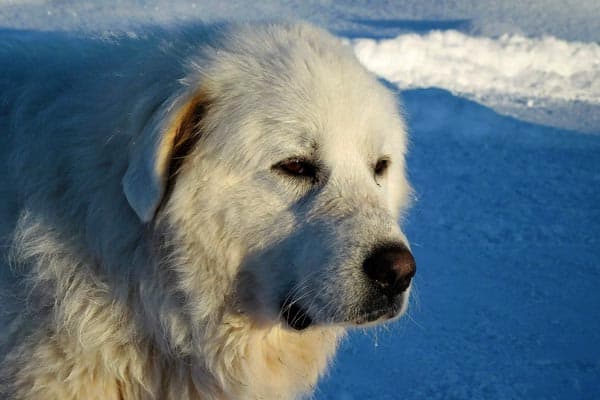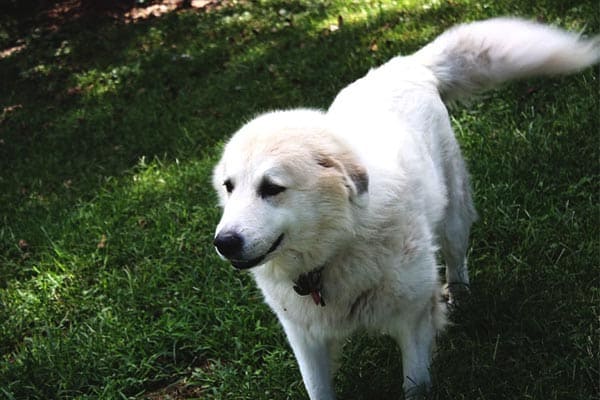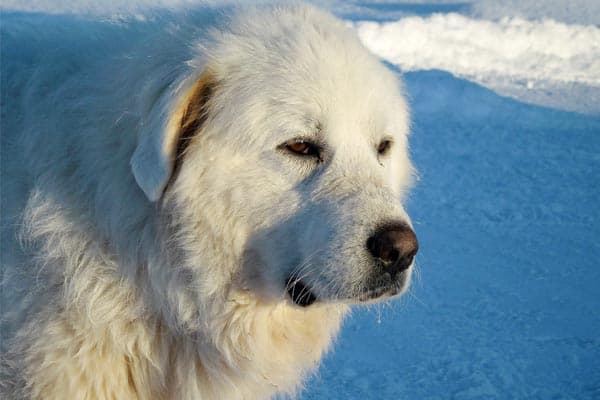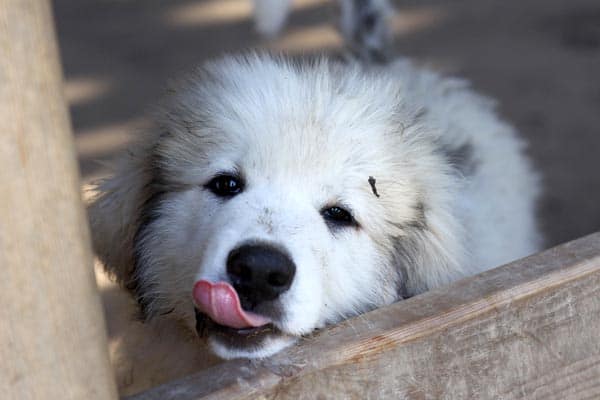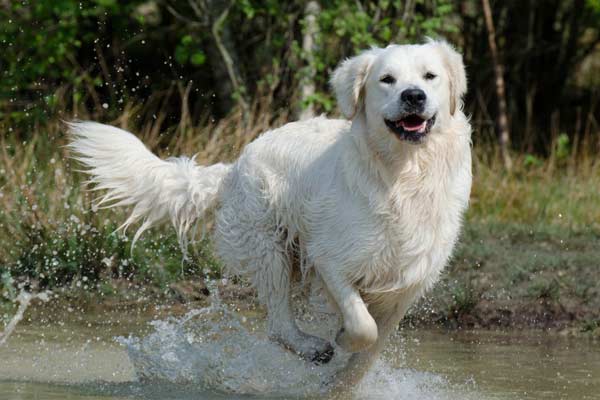Do Great Pyrenees Bark a Lot?
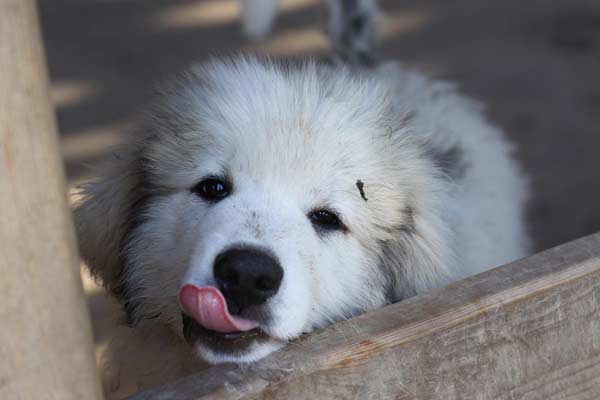
The Great Pyrenees are the finest breed of dog
They are incredibly affectionate and fluffy and make excellent family pets. But they do have some peculiarities, much like any dog breed.
You might be curious whether Great Pyrenees are noisy dogs if you wish to adopt one. You might wonder how much barking the Great Pyrenees typically does if you already own one.
Do the Great Pyrenees bark a lot?
Yes, despite individual variations, all Great Pyrenees do bark a lot. Great Pyrenean dogs naturally bark, and they do so for a variety of reasons, including fear, excitement, guarding, intimidation, and other emotions. With the proper training, you can stop your dog from barking excessively, and you won’t have to worry about it.
When they’re young, do Great Pyrenees bark more?
Because barking typically only gets worse as dogs mature, you should keep a watch on them.
The barking became a development as puppies grew older, like many other things. They accelerate, get stronger, and, regrettably, get louder.
For instance, most of them hardly bark while young, but as they age, they begin to bark at doorbells and other seemingly unrelated things.
Make sure you take action right away to stop barking if your Pry puppy is already highly vocal. Or, you can find yourself hosting a bothersome neighbor.
Great Pyrenees Barking History
Fossils from this breed that date back more than 3000 years have been discovered, making it one of the oldest breeds ever recorded. They naturally have a lengthy and fascinating past.
The Great Pyrenees were initially bred to protect herds of sheep. The Great Pyrenees were primarily mountain dwellers, where they got their name. These dogs lived their entire lives guarding and caring for their animal companions.
In wIn winter and summer, Pyrenees remained outside day and night and were well-suited as guard dogs. One of the most natural reasons Great Pyrenees bark is to deter predators from approaching their sheep.
The Great Pyrenees are mountain dogs with many unique characteristics besides their particularly loud barking. The Great Pyrenees’ bright white, double-layered coat kept them warm in the mountains.
To assist them in navigating the snowy, rocky terrain they frequently wandered over, they also obtained their beloved double dew claws.
The Great Pyrenees served as the royal family’s companions in France for a limited period. These dogs may begin to view their family as something that needs to be safeguarded when they don’t have a flock to guard.
Why Do Great Pyrenees Bark So Much?
Barking out of fear
Your dog may occasionally experience this if they are shocked by something. It’s similar to how we gasp when something unexpected happens.
However, you should take action if your dog is afraid of commonplace objects. Fearful barking at inanimate objects is not suitable for your Pyr. By desensitizing your dog to whatever scares them, you can prevent this.
You may train your dog using this time-consuming but effective technique by rewarding them when they remain calm around situations that would typically make them nervous.
Barking for protection
The great Pyrenees that are guarding something will bark to let you know.
Because they are guard dogs, Great Pyrenees may take their duty to protect you very seriously if they believe you are worth defending.
Each dog will react differently to this. If your Great Pyrenees is barking while turning its back on you and barking at something or someone, that is a sign that it is protecting you.
Intimidation barking
Without a doubt, the bark of the Great Pyrenees can be frightening. Typically, it is constant, loud, and assertive. A Great Pyrenees serving as a security dog is bound to intimidate.
Dogs bark to scare away people, other dogs, and occasionally other dangerous objects; they will employ this strategy to stay out of harm’s way.
Canines will avoid other dogs that appear or sound threatening in the same way that we might avoid a stranger who looks intimidating on the street.
Barking out of excitement
Most of the time, a Great Pyrenees barks out of excitement quickly and easily. They will bark before getting food, during play, and when they are excited to go on a stroll.
Barking is a primary way dogs communicate with humans, but this is rather unusual. They want to let us know how happy and ready to act they are.
When a Great Pyrenees barks, it may be for attention
Your dog may request an alert if you notice that they mostly bark at you while you’re on the couch or do not pay attention to them.
The best thing to do is to reward your dog with attention. If you do, you’ll set off a cycle that makes the Great Pyrenees more likely to bark when they want to be played with. Instead, please reward them when they stop barking and then play with them.
How to Train Your Great Pyrenees to Stop Barking
Offer mental and physical stimulation
By the end of the day, your dog will be exhausted and content from receiving both mental and physical stimulation, and they won’t feel the need to overreact by barking incessantly.
Giving dogs physical stimulation can be as simple as playing with them or bringing them for a walk or run to the dog park. Anything that keeps their bodies moving for the rest of the day will help them stay calmer.
You might try letting your dog smell fresh scents to excite and exhaust him cognitively. Dog treat puzzles or puzzle feeders are more options.
Socialize Your Pyrenees
As soon as possible, socialization begins. You can socialize your puppy in a controlled setting with other dogs before they have received all of their vaccinations.
It is a fantastic technique to accustom them to other canines in the first few months of their lives.
Don’t isolate your pyr as they become older. Allow Great Pyrenees to visit a dog park or, at the very least, allow them to sniff other dogs while out for a stroll.
Even better if you know a buddy or a neighbor. Your dog is less likely to bark whenever they see another dog the more frequently they engage with canines.
Train Your Great Pyrenees
Today, there are countless products available for training dogs. You can train yourself at home or with the assistance of a pro. Even online, you can use support.
Training is a long-term solution. Once you get going, it becomes more of a lifestyle. However, you can significantly reduce your Great Pyrenees’ barking if you put in the effort.
In addition, your dog will obey your commands when you need them to (or to stop doing something).
Because training requires more than a few sentences, continue reading to understand how to teach your Pyr to stop barking so much.
Keep Your Dog Indoors Overnight
Dogs bark more at night to warn off predators, respond to nocturnal animals, and possibly even because they are bored.
Bring your dog inside at night to prevent barking, especially for the sake of the entire neighborhood. Many Great Pyrenees owners claim that a nightly routine aids in preparing their dogs for sleep.
By keeping them inside, you may reduce the noises your dog hears and their general reactions to predators.
Conclusion
The Great Pyrenees are known for their frequent, loud barking. There are several techniques to stop barking and train your dog not to bark in particular circumstances.
The methods mentioned above can assist you in recognizing and reducing excessive barking from Great Pyrenean dogs.
